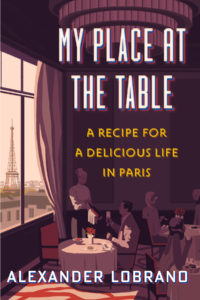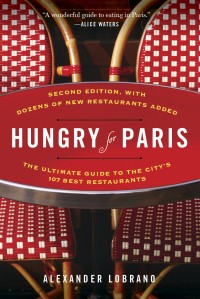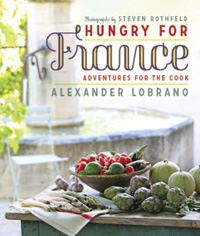Canard & Champagne, Paris | A Delicious New French Couple, B
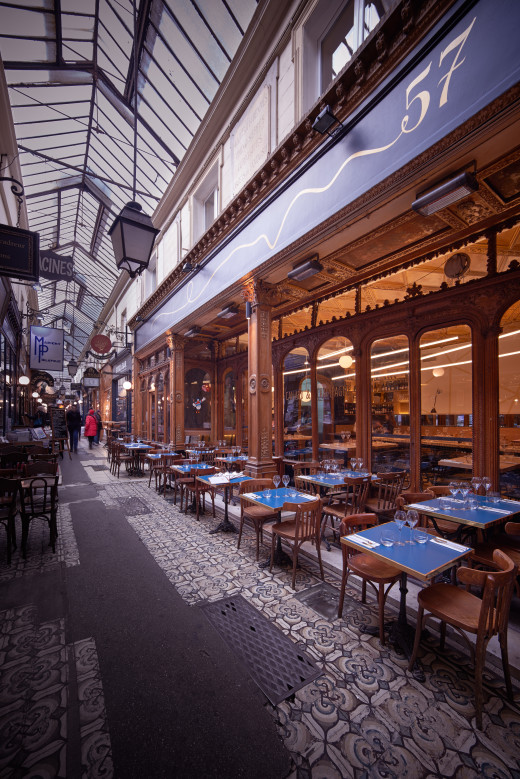
@Stephane Adam
Canard & Champagne, a new restaurant in the Passage des Panoramas in Paris, has a very clever concept. Occupying the magnificent landmarked former premises of an 18th century stationery shop with black-and-white marble floors and a magnificent carved wooden shop in the moody Passage des Panoramas, this casual convivial place specializes in two of the most quintessentially French products imaginable, duck and Champagne. It’s the brainchild of shrewd young restauranteurs Jean Valfort, who previously launched Blend, Paris’s first gourmet burger chain, and Pierre Dutaret, who comes from a famous foie-gras producing family in southwestern France.
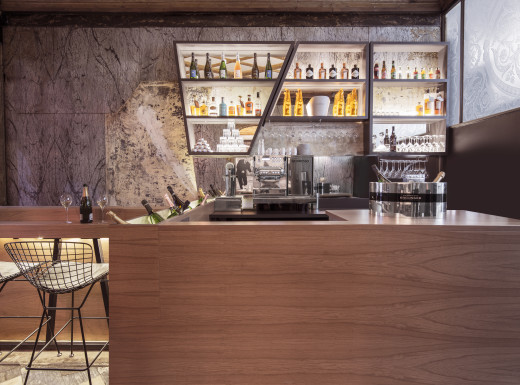
Bar at Canard & Champagne @ Stephane Adam
“Our concept is unabashedly cocorico (this is how the French hear the crowing of the cock that is their national symbol, and the word is also slang for patriotism),” says the amiable Valfort. “We also wanted to promote Champagne as a table wine, or a wine that pairs well with food. Too many people think of it only in terms of being a party drink or a special-occasion quaff, but it goes so well with a variety of different foods, including duck and foie gras, the staples of our menu,” he added.
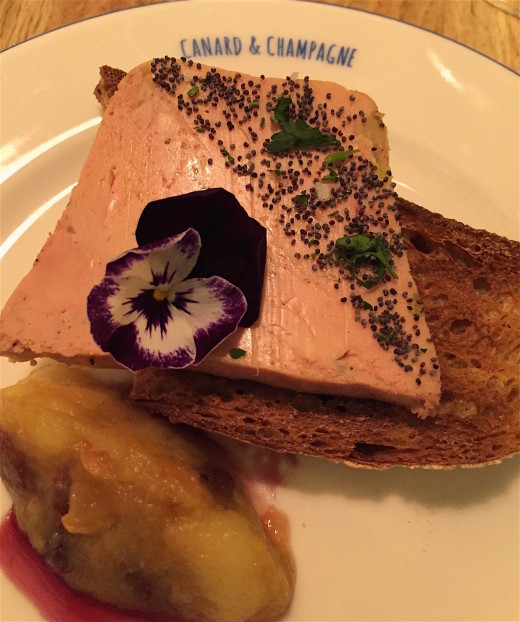
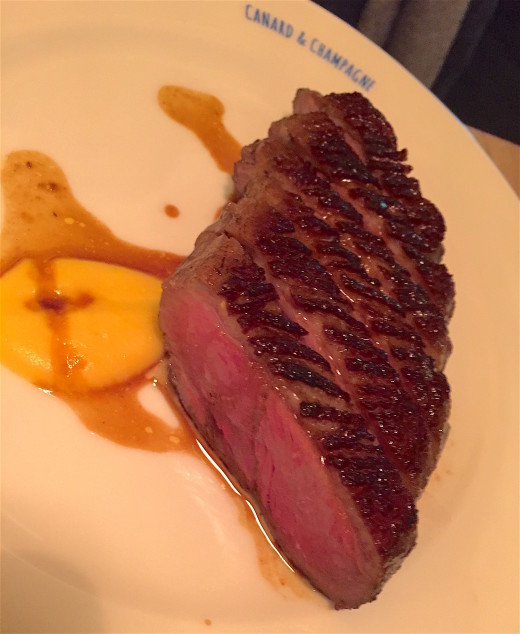
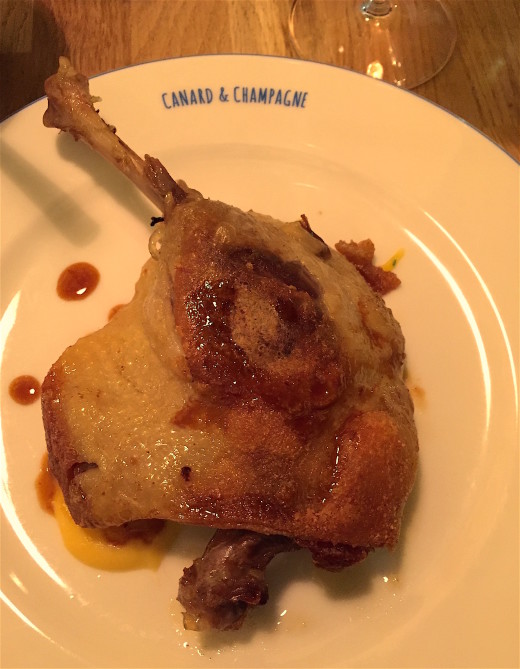
Indeed, it’s easy to order here since you have a choice of two starters—excellent foie gras that comes with an intriguing chutney of fruit and nuts or a green salad, three main courses—magret de canard (grilled duck breast), confit de canard (duck preserved in its own fat) or a steak. Desserts come from the Boulangerie BO in eastern Paris, and they’re superb, especially the Madagascar vanilla and chocolate tarts. And to add to the fun of a meal here, the sommelier is happy to suggest a different Champagne for each course.
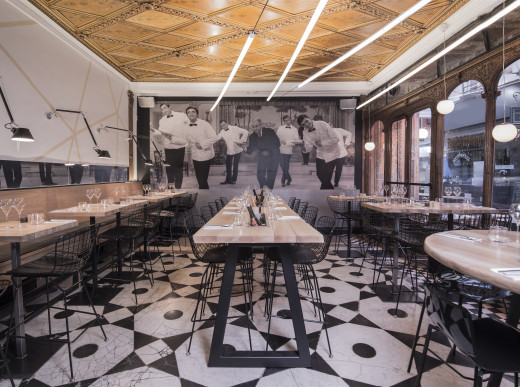
What I was not expecting when I went to dinner here with Bruno was an abrupt and very powerful experience of time travel triggered by taste memory.
In fact it was the appropriately goose-bump inducing mineral-rich succulence of the juicy magret de canard (duck breast) that sent me musing in some very murky layers of memory. The stunning deliciousness of this ur French fowl, which was served with potatoes and a flute of delicately fruity Champagne that flattered the bird perfectly, unexpectedly equipped me with a sort of impromptu sextant which made it possible to measure a large stretch of lapsed time with amazing accuracy and flinchingly tender perceptivity.
If one sharp point of the instrument was stuck in the flesh of the duck the other night, the other was more randomly pinned rather precariously to a summer night on Quogue, Long Island in the late 1960s. Here, in a great gray hen of a wood-shingled Victorian summerhouse, I ate my first duck.
The bird in question had been purchased from the big duck-shaped cement shop—a masterpiece of American roadside kitsch that all of us loved, in the back country behind Quogue back in the days when the hot summer air on Long Island still smelled pungently, almost sulfurously of potato fields and there were enough duck farms around so that ‘Long Island duck’ was a designation on New York City menus.
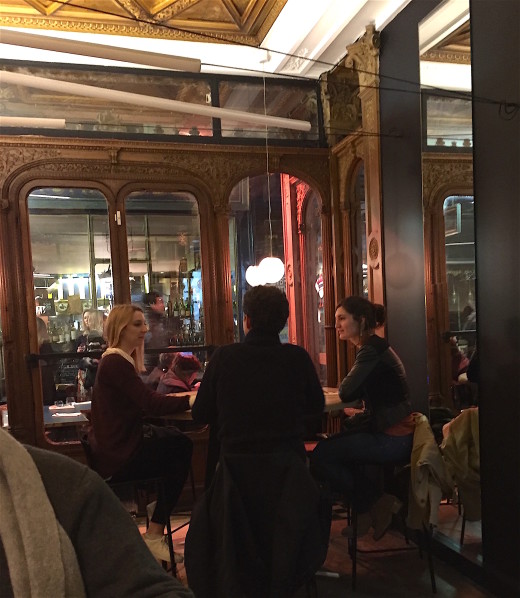
My parents had been dispatched on a five-week Mediterranean cruise by my grandmothers to mend a marriage that would remain rudderless, and we—me, my two brothers and my sister—went to stay with our adored Grandmother Jean in this huge but wonderfully shabby place with lots of clam-shell ash trays, board games missing cards and other bits and pieces, paperbacks swollen from humidity in lop-sided bookcases and wobbly wicker furniture with hard kapock pillows covered in faded floral patterns. During the week, my heart-stoppingly handsome second cousin Bart—his beauty came largely from his Argentine mother rather than any blood line we shared—took me and my brother John to the beach club, where we spent the whole day in the sea like seals while he chatted up and conquered one pretty blonde au pair girl after another. Meanwhile, my younger brother and sister splashed the minnows and each other in an inlet at the bottom of the lawn where my grandmother could keep an eye on them.
If the weeks were peaceful, the weekends were agitated, because my aunt, a then unmarried book editor who lived in New York City, would come for the weekend with one friend or another and often a pair of boys to boot. While we were content with the cleaning woman’s wonderful fried chicken and potato salad, or hot dogs and hamburgers, this wouldn’t do for the Manhattanites, which is how I found myself sitting at the dining room table starting into a plate a piece of duck, the hairs on its skin still visible and its gray meat napped by the orange sauce someone had attempted to improvise with orange marmalade, Dijon mustard and some Port.
All of the adults came to the table with the remains of their cocktails, watered down by ice cubes that had melted to the size of aspirins. It was a sweltering night, and the sad little fan someone had put on a side chair near the table only really served to remind all of us of just how hot and uncomfortable we really were.
I thought the duck was loathsome—it was too gamey for my pre-adolescent palate, the meat was stringy, and the sauce was at once too sweet and too tart. I noticed that Bart, the apple of my eye, wasn’t eating his bird either, and that my grandmother had laid her silver over her duck to unconvincingly disguise the fact that she’d barely touched it, and to make sure no one thought she was going back to it, she’d already lit a Parliament.
“Alec, you’re always so curious at the table—why haven’t you eaten your duck?” asked my aunt.
“It tastes awful,” I said, and the conversation stopped. All of the adults at the table except my grandmother insisted I be punished for my rudeness.
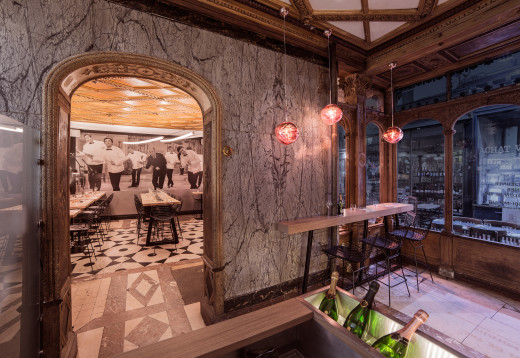
“Oh, well, my lambs, it’s such a warm night, and maybe duck isn’t something that children are necessarily going to enjoy,” my grandmother started equivocating. But the little mob was not to be stopped, which is why I was sent to bed early without dessert.
I was in my room sitting on the window sill next to the screen window listening to the crickets in the night and hoping I might catch another tantalizing glimpse of Bart taking a shower in the chauffeur’s apartment over the garage where he was staying before he went out, as he did every night, when the door opened. I knew it was my grandmother from the orange point of her lit cigarette as she advanced through the dark. “Here you are, darling.” She’d come up the back stairs to bring me a bowl of vanilla ice cream with butterscotch sauce. We sat next to each other on my bed while I ate my ice cream and she smoked, her ashes falling somewhere in the dark.
“Mother!? Mother?! Where are you? We’re waiting to start the game,” my aunt called from down the hall. “Alright, sweet dreams, darling, and I’ll see you in the morning,” she said, kissing me on both cheeks. She started away, and then she turned back, “Oh, and one more thing,” she whispered. “Don’t write off duck entirely based on the one we had tonight. It can be delicious when it’s cooked properly the way they do it France. You’ll see one day, I’m sure you will.”
And so I did.
Nothing preserves memory better than scent, food and music.
57 Passage des Panoramas, 2nd Arrondissement, Tel. (33) 9-81-83-95-69, Metro: Richelieu-Drouot, Grands Boulevards, or Bourse. Open Tuesday to Sunday, noon-12am. Closed Monday. Lunch menus 17.50 Euros, 20.50 Euros; prix-fixe menu 26 Euros; desserts 8 Euros. www.canardetchampagne.com

